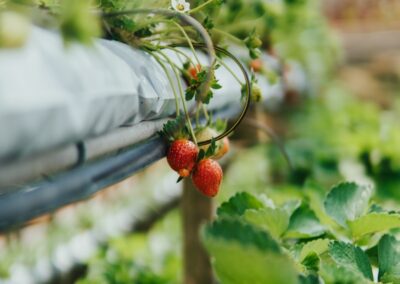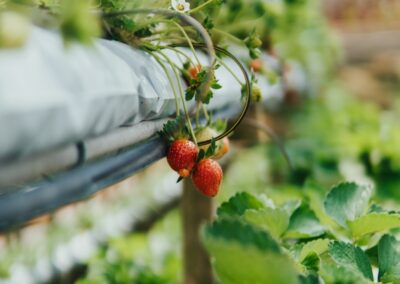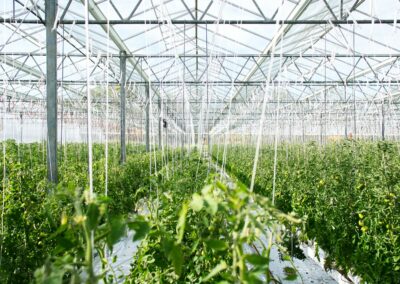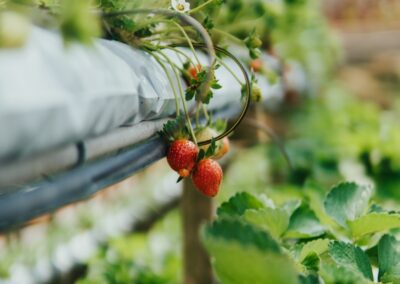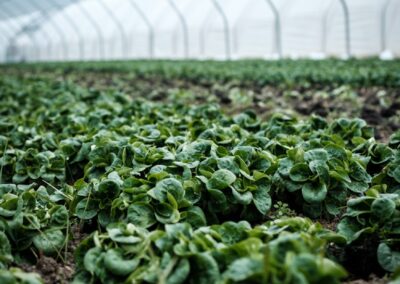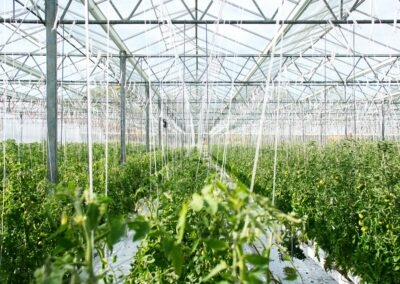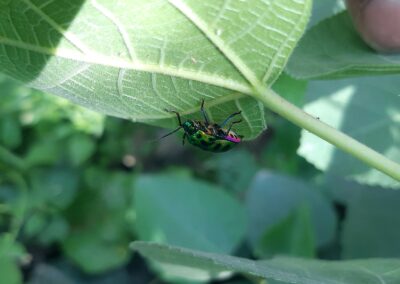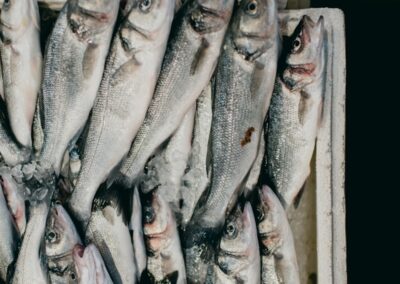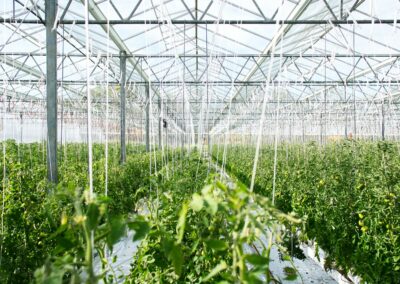The Symbiotic Relationship in Aquaponics
Combining Aquaculture and Hydroponics
Sustainable aquaponics farming system uniquely combines aquaculture (fish farming) with hydroponics (soilless plant cultivation) in a symbiotic environment. This innovative approach leverages the natural biological cycles to create a closed-loop system. Fish waste provides essential nutrients for plant growth, while the plants, in turn, filter and purify the water that is recirculated back to the fish tanks. This mutually beneficial relationship not only enhances productivity but also reduces the environmental impact by minimizing waste and conserving water. For business executives and entrepreneurs in regions like Saudi Arabia and the UAE, adopting aquaponics can be a game-changer in promoting sustainable agriculture and addressing food security challenges.
Efficiency and Resource Conservation
One of the most significant advantages of sustainable aquaponics farming is its efficiency in resource use. Traditional agriculture methods often require substantial water and fertilizer inputs, which can be both costly and environmentally damaging. In contrast, aquaponics systems use up to 90% less water and significantly fewer fertilizers. This efficiency makes aquaponics particularly suitable for arid regions such as Riyadh and Dubai, where water conservation is crucial. By investing in aquaponics, businesses can achieve higher yields with lower resource inputs, contributing to both economic and environmental sustainability.
Urban Agriculture and Local Food Production
Sustainable aquaponics farming is ideal for urban agriculture, transforming unused urban spaces into productive farming areas. This approach reduces the need for long-distance food transportation, thereby lowering the carbon footprint associated with food distribution. In cities like Riyadh and Dubai, integrating aquaponics into urban planning can enhance local food production, ensuring a steady supply of fresh, locally-grown produce. This not only supports urban food security but also provides new business opportunities for local entrepreneurs and boosts the local economy.
Artificial Intelligence for System Optimization
Integrating Artificial Intelligence (AI) in aquaponics systems can revolutionize the way these systems operate. AI can monitor and analyze various parameters, such as water quality, temperature, pH levels, and nutrient concentrations, in real-time. This data-driven approach allows for precise adjustments to be made, optimizing conditions for both fish and plants. For businesses in Saudi Arabia and the UAE, leveraging AI can lead to significant improvements in efficiency and productivity, making aquaponics a more viable and profitable venture. By harnessing AI, businesses can ensure optimal system performance, reduce operational costs, and increase overall yields.
Blockchain for Transparency and Trust
Blockchain technology can play a crucial role in enhancing transparency and traceability in aquaponics systems. By recording every step of the production process on a decentralized ledger, blockchain ensures that all transactions are transparent and tamper-proof. This builds consumer trust in the sustainability and safety of aquaponics products. For management consultants and business leaders in Riyadh and Dubai, utilizing blockchain technology can help differentiate their products in the market, attract eco-conscious consumers, and comply with stringent food safety regulations.
The Metaverse and Virtual Collaboration
The Metaverse offers exciting possibilities for virtual collaboration and education in the field of aquaponics. Virtual reality (VR) environments can simulate aquaponics systems, providing immersive training experiences for staff and stakeholders. This technology can facilitate remote inspections, interactive demonstrations, and virtual tours, making it easier to manage and promote aquaponics projects. For executives and entrepreneurs, embracing the Metaverse can enhance team collaboration, improve knowledge sharing, and attract investors interested in cutting-edge agricultural technologies.
Executive Coaching for Leadership Excellence
Strong leadership is vital for driving the success of aquaponic initiatives. Executive coaching services can help leaders develop the necessary skills to navigate the complexities of aquaponic systems. Coaching focuses on strategic thinking, effective communication, and the ability to inspire and motivate teams. In competitive markets such as Saudi Arabia and the UAE, executive coaching equips leaders with the tools to lead transformative projects, foster innovation, and achieve sustainable business growth.
Enhancing Communication and Collaboration
Effective communication and collaboration are key to the success of aquaponic operations. Business executives and managers must articulate the benefits of aquaponics to investors, employees, and consumers clearly and persuasively. In multicultural regions like Saudi Arabia and the UAE, understanding and respecting cultural differences is crucial for building strong relationships and fostering teamwork. By promoting open communication and collaboration, businesses can enhance team cohesion, ensure successful project implementation, and drive sustainable agricultural practices that benefit both the environment and the economy.
#SustainableAquaponicsFarming #BusinessSuccess #EffectiveCommunication #ManagementConsulting #ArtificialIntelligence #Blockchain #Metaverse #LeadershipSkills #ManagementSkills #ProjectManagement #SaudiArabia #UAE #Riyadh #Dubai #ChangeManagement #ExecutiveCoaching


